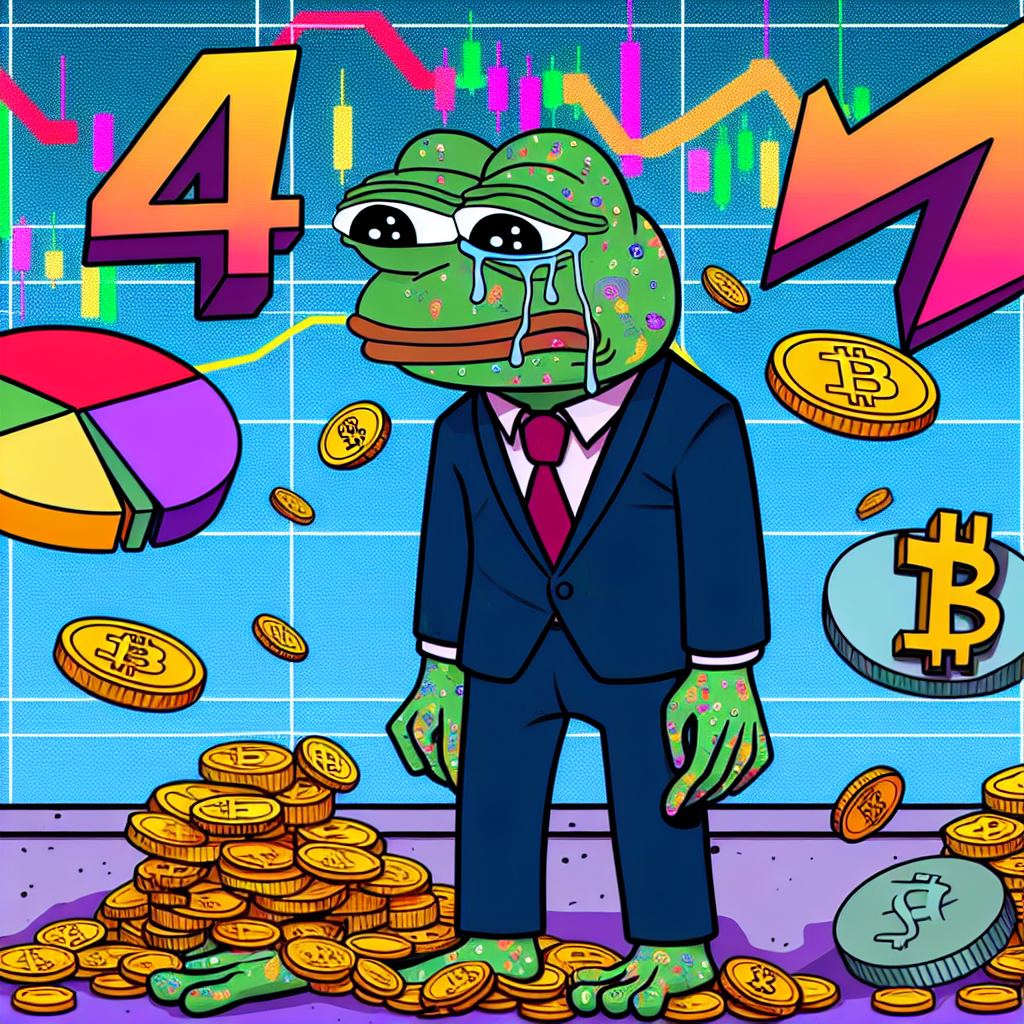On social media, a bitter spat between two Cardano-based startups has boiled over, prompting blockchain pioneer Charles Hoskinson to step in on YouTube this week with a blunt call to action: “get your s**t together.” The intensity of the quarrel underscores the growing pains within this ambitious blockchain ecosystem.
CardStarter, self-styled as a “decentralized accelerator” nurturing Cardano startup projects, is at odds with SundaeSwap, a decentralized exchange (DEX) operating on Cardano.
The core of their discord centres on what once seemed a promising marketing pact now left sour, with each camp accusing the other of reneged verbal promises and broken assurances.
Such turmoil risks casting a shadow over Cardano, often hailed as an “Ethereum killer” for its quest to rival Ethereum—the world’s second-largest blockchain and a powerhouse hub for innovations spanning from decentralized finance (DeFi) to NFT marketplaces. Even Charles Hoskinson, a co-founder of Ethereum, conceded that this public feud could tarnish “the ecosystem’s brand as a whole.”
Adding fuel to the fire, SundaeSwap’s launch last week was marred by user backlash due to severe delays in distributing its native SUNDAE tokens, with project reps issuing a plea for calm on their website.
What began as a cooperative venture nearly a year ago has unraveled into sharp accusations and financial grievances on both sides.
For Cardano’s investors, this episode highlights the complex challenge of fostering a cohesive network of projects, developers, and traders without encountering major setbacks.
Promising Beginnings
April 2021 saw CardStarter unveil CardSwap, a DEX pitched as Cardano’s analogue to Ethereum’s Uniswap. It featured a liquidity mining scheme rewarding participants with CSWAP tokens, designed to incentivize early involvement.
By June, CardStarter and SundaeSwap struck a deal: CardStarter would halt its competing CardSwap DEX development and instead inject liquidity into SundaeSwap. This alliance was publicly celebrated in a July press release.
In a July Twitter AMA, CardStarter’s senior operations advisor, Ashwin Somasundaram, described this as “a merger,” explaining that SundaeSwap would become the primary DEX platform, effectively replacing CardSwap.
He reassured the CSWAP community that they would be “very well taken care of” and that this arrangement was an “amazing end of this deal.”
By October, CardStarter CEO Aatash Amir claimed SundaeSwap agreed to allocate 150 million SUNDAE tokens for this partnership.
Supporting this, a January 24 tweet from CardStarter displayed Telegram chat screenshots outlining the plan, where SundaeSwap’s CIO confirmed setting aside 7.5% of SUNDAE’s total supply—equating to 150 million tokens out of 2 billion—for CardStarter.
However, on January 18, SundaeSwap co-founder Artem Wright communicated via Telegram that the token allocation would be slashed to 10 million.
Wright justified this reduction, stating, “10M is the fair amount for what is available today,” citing notably lower total value locked (TVL) in the CardSwap liquidity pool than initially projected. TVL is a key DeFi indicator that reflects how much capital has been staked in a protocol, revealing its size and health.
In an interview with CoinDesk, Wright revealed CardStarter had promised to bring at least $200 million in TVL to SundaeSwap, but this expectation dropped to $10 million by the negotiations’ conclusion.
Attempts to get CardStarter’s comment on the purported $200 million TVL promise went unanswered before publication.
Crunching the Numbers
CoinDesk independently verified TVL figures via Uniswap data, noting that on October 31—the purported date SundaeSwap committed 150 million tokens—CardStarter’s CARDS token held $18.5 million TVL. By January 20, this had slightly declined to $17.5 million.
James Thornton, a UK-based IT consultant and CSWAP investor, expressed skepticism about CardStarter’s claim of agreeing to $200 million in TVL for a mere 7.5% token slice, deeming it unrealistic.
- Thornton: “No DEX partner would halt development of their own DEX to relocate $200 million TVL for just 7.5% of tokens. They’d expect at least 80%.”
The downsizing of the token allocation left CSWAP holders unable to secure the SUNDAE tokens they had anticipated.
Following the revelations, the CARDS token—which traded near $9 on January 18—plummeted to approximately $3, after peaking around $80 back in May.
Disappointed liquidity providers voiced outrage, branding the unraveling a “rug pull” across Twitter, Telegram, and Discord channels.
Personal Toll on Investors
- Alec, a Melbourne university student, confided to CoinDesk he lost $300,000 mining CSWAP tokens and lamented, “I never would have invested if SundaeSwap hadn’t publicly backed the deal, assuring CSWAP holders would be well cared for.”
- Darren, an Australian healthcare worker preferring anonymity, reported losses of $116,000 on CSWAP and an extra $30,000 from impermanent loss as a liquidity provider for the CARDS-ETH pool on Uniswap, pending migration to SundaeSwap.
Darren explained, “SundaeSwap wanted our CSWAP liquidity for its DEX’s success and assured us mining would continue as liquidity shifted over.” He added that holders kept their liquidity locked from mid-2021 until now, suffering losses from market volatility and especially due to the January 20 thinning of SUNDAE token allocations.
Thornton echoed these sentiments, revealing losses exceeded $200,000: “The deal soured, the CARDS token tanked, and despite having my life savings locked for nine months, I have zero access to liquidity and lost 90% of its value.”
CoinMarketCap reflects this downturn: CSWAP tanked from about $0.21 prior to SundaeSwap’s January 20 announcement, to roughly $0.03 today.
In response to mounting criticism, SundaeSwap flatly denied any merger or token promise, clarifying the relationship was strictly a “Marketing and Collaboration Agreement” signed in June 2021, not a merger.
Communication Missteps and Legal Boundaries
SundaeSwap admitted in a subsequent blog post that team members occasionally “chose words poorly” when describing the agreement and liquidity expectations.
Wright reiterated there were no token promises made to CardStarter, emphasizing the June agreement only encompassed CardStarter’s commitment to halt its own DEX development without receiving tokens in return.
He further claimed the Telegram screenshots shared by CardStarter only represent “partial glimpses” of a drawn-out negotiation process.
Key Points from the June Agreement
| Token Allocation | No specific token amounts were stipulated |
| Liability Caps | Each party’s liability limited to $5,000 |
| Listing Preferences | SundaeSwap agreed to prioritize CardStarter-contributed trading pairs in the first year post-launch |
| Binding Terms | No other verbal or written agreements besides this one were recognized |
| Signatories | Motivef (SundaeSwap) & Amir (CardStarter) |
| Addresses | SundaeSwap: Greenbrae, CA; CardStarter: British Virgin Islands PO Box |
Hoskinson’s Intervention
Initially somewhat underinformed on the dispute, Cardano founder Charles Hoskinson told CoinDesk he would catch up before commenting. Later that Monday evening, he went public via YouTube, sharply criticizing both SundaeSwap and CardStarter for airing grievances on social media platforms like Twitter, Reddit, and Telegram.
“It’s despicable,” Hoskinson declared. “This behavior just shirks responsibility and sullies the entire ecosystem’s image.”
His call was straightforward: “Both sides need to come together, agree to arbitration, communicate frankly, and reach a resolution. Failing that, the courts remain an option.”
Outside Perspective on Reputation
Denis Vinokourov, research head at Corinthian Digital, views the episode as another misstep in crypto communications.
“Regardless of the facts, publicly squabbling like this is poor form and damages Cardano’s chances at drawing institutional investors,” Vinokourov commented.
Amid this turmoil, Cardano’s ADA token has slumped 27% in the past month, trading near $1.11, alongside a broad crypto market downturn impacting bitcoin and other major coins.




